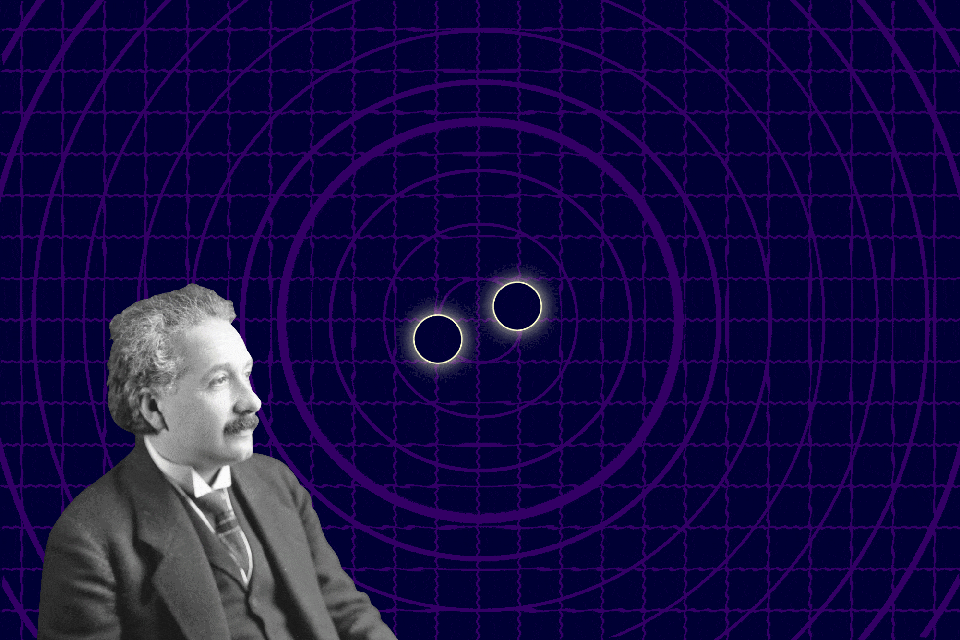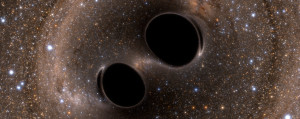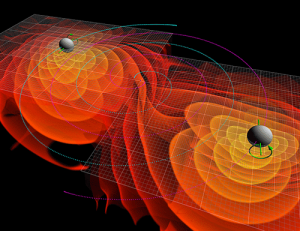
The interwebs have been going crazy the past few days with the recent announcement that scientists have for the first time detected gravitational waves, the ripples in the fabric of space-time that Einstein predicted a century ago. In terms of scientific advancement, to quote Joe Biden, “This is a big fucking deal!” Bigger than the discovery of the subatomic Higgs boson particle (i.e., the god particle), and it has been suggested this discovery is comparable only to “Galileo taking up the telescope and looking at the planets.” – Penn State physics theorist Abhay Ashtekar

So how did this happen, and why is this discovery so huge? Previously humans have used light of varying wavelengths to describe our universe. Visible light first revealed the starry nether space, infrared allowed us to peer further back in time and see older, more distant stars. Radio waves revealed the afterglow of the universe’s violent birth, and X-rays showcased the supernova deaths of massive stars. But now, scientists will be able to sense the universe in a whole new way: through sound. That is because you don’t visualize gravity waves, you hear them. Gravity waves are the ballads of the universe, and for the first time in human history we are able to hear that song.

(Photo credit: B. P. Abbott et al. 2016 – LIGO Scientific Collaboration and Virgo Collaboration)
Gravitational waves, which Einstein predicted as part of his general theory of relativity, occur as objects accelerate/decelerate through space, analogous to a boat moving through the water and the resulting ripples it produces across the water’s surface. Every object produces a gravitational wave, but they are so tiny that until now it has been nearly impossible to detect them. The current discovery was the result of the collision of two black holes (a rare but powerful event in space). As the two black holes collided with each other, they distorted spacetime, generating a cycle of waves, strong enough for the Laser Interferometer Gravitational-Wave Observatory (LIGO) to detect 1.3 billion light-years away. And to answer your question, yes, we detected the sound of something that occurred over a billion years ago. So what does the universe sound like you ask, oddly enough, like a bird chirping. Go figure.
To learn more about gravity waves and why they are important, check out LIGO’s informative website. Also The Atlantic has an awesome in-depth piece about what this discovery means, and with this recent discovery people are already theorizing about what we should listen to next!
You can read the original article about this amazing discovery in the journal of Physical Review Letters where they go into detail about how they were able to make their detection.
Science, why you so cool?! Happy FSF all!!!